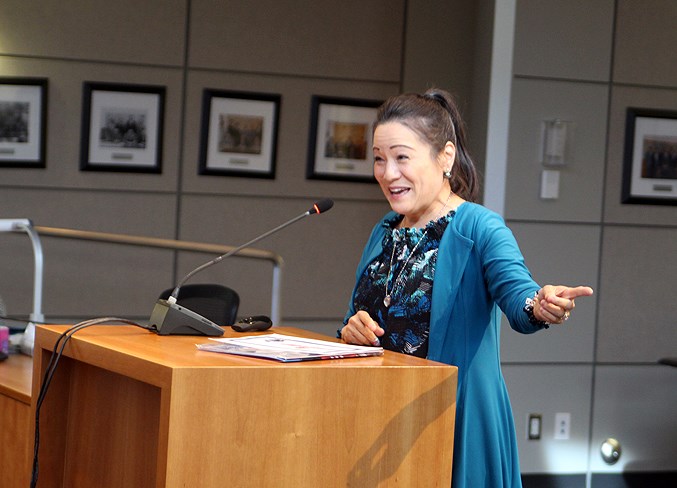“It’s very much a united effort as we work together to ensure, protect, and preserve STARS, not only for today, but for our future generations.”
Senior municipal relations liaison for STARS Air Ambulance, Glenda Farnden, made a presentation to the MD of Bonnyville during their committee meeting on Wednesday, April 17, about their efforts within the municipality and beyond.
Over 150 lives in the MD have been changed forever because of STARS.
Since 2014, the air ambulance service has assisted with 151 missions in the area, 87 were Bonnyville inter-facility transfers, while 10 were on-scene assists within the municipality. Cold Lake responses included 50 inter-facility transfers and two scene missions. Glendon also have utilized the service on two occasions over the past five years.
In 2018, the MD called on STARS for 10 inter-facility flights and two scene responses.
“It’s important to remember that we all travel, we all commute, it could be Bonnyville residents in mission in neighbouring municipalities and vice-versa,” Farnden said.
Using an average of 30 missions per year, Farnden said the MD’s contribution to the organization helps save the residents who need the service in the worst of circumstances roughly $200,000 overall annually.
“That’s where your contributions are going. You’re helping ensure safety and a quality of life for your residents when you’re supporting STARS,” she added.
With that in mind, STARS is needing to replace their nine helicopters, which according to Farnden, are aging.
“We deliberated for many years on when the fateful day would come, our helicopters are aging. They’re approaching 35-years-old. We had some challenges last year with our BK117s that they’re now phased out of production. They’re no longer making parts,” she detailed.
They’ve chosen the H145 to replace their fleet, and were happy to announce the provincial and federal government would be stepping in.
“(The H145) is basically the sister to the BK117 that has served us very well for the past 35 years. It’s a work horse. It’s very much the same size, weight, everything is the same in comparison other than a new tail rotor system,” stated Farnden, adding each helicopter costs about $13-million.
“We planned to build the fleet one helicopter at a time as we raise the money. Originally, we were looking at $120-million plus capital campaign, alongside still trying to secure $30-million per year for operations in Alberta,” continued Farnden.
That plan changed when the Province of Saskatchewan confirmed they would cover the cost of purchasing a helicopter for the service in their province, with Alberta soon to follow suit.
“STARS has always been considered a provincial service, so we really have no affiliation with the federal government. They’ve recognized STARS and that we’re serving western Canada. They’ve made a commitment of $65-million to pay for five helicopters to help serve western Canada,” emphasized Farnden. “That $120-million capital campaign has now been reduced to an about $26-million capital campaign.”
Farnden explained how it was more than just a helicopter.
“It’s not just about transport. The helicopter itself is very much an air transport care unit, and it’s also that critical care expertise in the back. That whole combination is vital when you’re in a trauma situation.”
Currently, the MD contributes $10,000 annually to STARS.
Farnden said she would be sending a letter to council in the fall asking for continued support, while also requesting an increase to their per capita amount.
”In our program it ranges anywhere from $2 per capita up to $90 per capita, and everything in between,” she explained. “Even if every single person in Alberta, which is the ultimate goal, was giving $2 per year, that’s less than a cup of coffee, to ensure we all continue to have STARS available to us at no cost if you happen to find yourself having the worst day of your life.”



